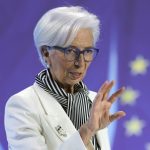
A European wealth tax could raise funds nearly 50% greater than the entire annual EU budget, Oxfam reported on Thursday (11 April), just as political support for the policy seems poised to retrench amid the bloc’s anticipated shift to the right after June’s European elections.
The NGO noted that a total of €286.5 billion could be generated yearly by levying a 2% tax on European citizens with a net wealth of over €4.6 million, 3% on wealth above €45.7 million, and 5% on wealth over €913 million.
In comparison, the EU’s annual budget ranges between €160 and 180 billion — or about 1% of the bloc’s GDP, according to Brussels-based think tank Bruegel.
The study comes amid signs of growing international support for levies on extreme wealth but also declining support for European parties — mostly on the left or centre-left — that back such a measure.
“We think that [a wealth tax] is strongly feasible and it’s only a matter of political will to say if it’s possible or not,” Oxfam policy advisor Julien Desiderio told Euractiv.
Although “it is true that right-wing parties that are leading in polls today [do] not support a wealth tax,” there is still considerable public support for such a policy, he said.
Desiderio referred to a February 2023 Eurobarometer survey which found that 67% of European citizens agreed that “it is an important task for their national government to tax the rich in order to support the poor”.
He also cited the fact that Spain, the bloc’s fourth-largest economy, introduced such a measure in 2022.
A global wealth tax was openly supported by several G20 finance ministers — including French Finance Minister Bruno Le Maire — in February this year, he noted.
Nevertheless, political parties that support a wealth tax are generally forecast to lose ground in the European parliamentary elections in June.
According to the latest election projections, the Socialists & Democrats and Greens/EFA groups — both of which support such the measure — are expected to lose five and 20 seats respectively.
However, the Left Group, which also supports a wealth tax, is set to gain 10 seats.
Oxfam’s study follows a report by the EU Tax Observatory published in October last year that similarly called for a “coordinated global minimum wealth tax on the very rich”.
The report noted that the share of global wealth taken by billionaires has tripled over the last 25 years.
It also estimated that a global minimum tax of 2% on billionaires would generate $214 billion annually in additional public revenues globally each year, including $42.3 billion (or roughly €38.9 billion) in the EU alone.
‘Magical formulas’?
Oxfam’s study comes amid a broader push by European policymakers to encourage the private sector to finance critical investments to facilitate the green and digital transitions, as the bloc seeks to rein in public expenditures after heavy government spending during the COVID-19 pandemic and subsequent energy crisis.
The move has been criticised by numerous experts who argue that the private sector is ill-equipped to fund many of these investments due to their lack of profitability.
“The EU desperately needs a new public finance strategy, which isn’t afraid to borrow safely to invest in our future and make sure the wealthiest pay what they owe,” Sebastian Mang, a senior policy officer at the New Economics Foundation think-tank, told Euractiv.
“Those with the broadest shoulders should contribute their fair share,” he added.
Philippe Lamberts, co-president of the Greens/EFA group, noted that the push to encourage private companies to fund such investments through further integration of the bloc’s single market and, in particular, the deepening of the Capital Markets Union, are “clinging to magical formulas” about how the economy works.
“The reality is that private capital owners have zero interest in investing in the green transition,” Lamberts told Euractiv. “They only do that either when it’s profitable for them or if they are legally obliged to do it.”
EU finance ministers are set to meet in Luxembourg this Friday (12 April) to discuss the future of the Recovery and Resilience Facility (RRF), a €723.8 billion initiative agreed in December 2020 intended to boost Europe’s post-pandemic recovery by financing critical investments in exchange for specific reforms.
In a possible sign of the EU policymakers’ growing openness towards public financing, on Tuesday (9 April) European Commissioner for Economy Paolo Gentiloni called for the RRF, which is set to expire in 2026, to become a “blueprint” for future EU programmes.
“I have no doubt that the EU would benefit hugely from a permanent, safe asset commensurate with the size of its economy, and this will be a big issue to discuss for the next Commission,” Gentiloni said.
He added that the EU’s “end goal should be the establishment of an EU-wide central fiscal capacity” that could be used to “provide European public goods in areas such as energy, innovation and defence”.
[Edited by Anna Brunetti/Zoran Radosavljevic]







